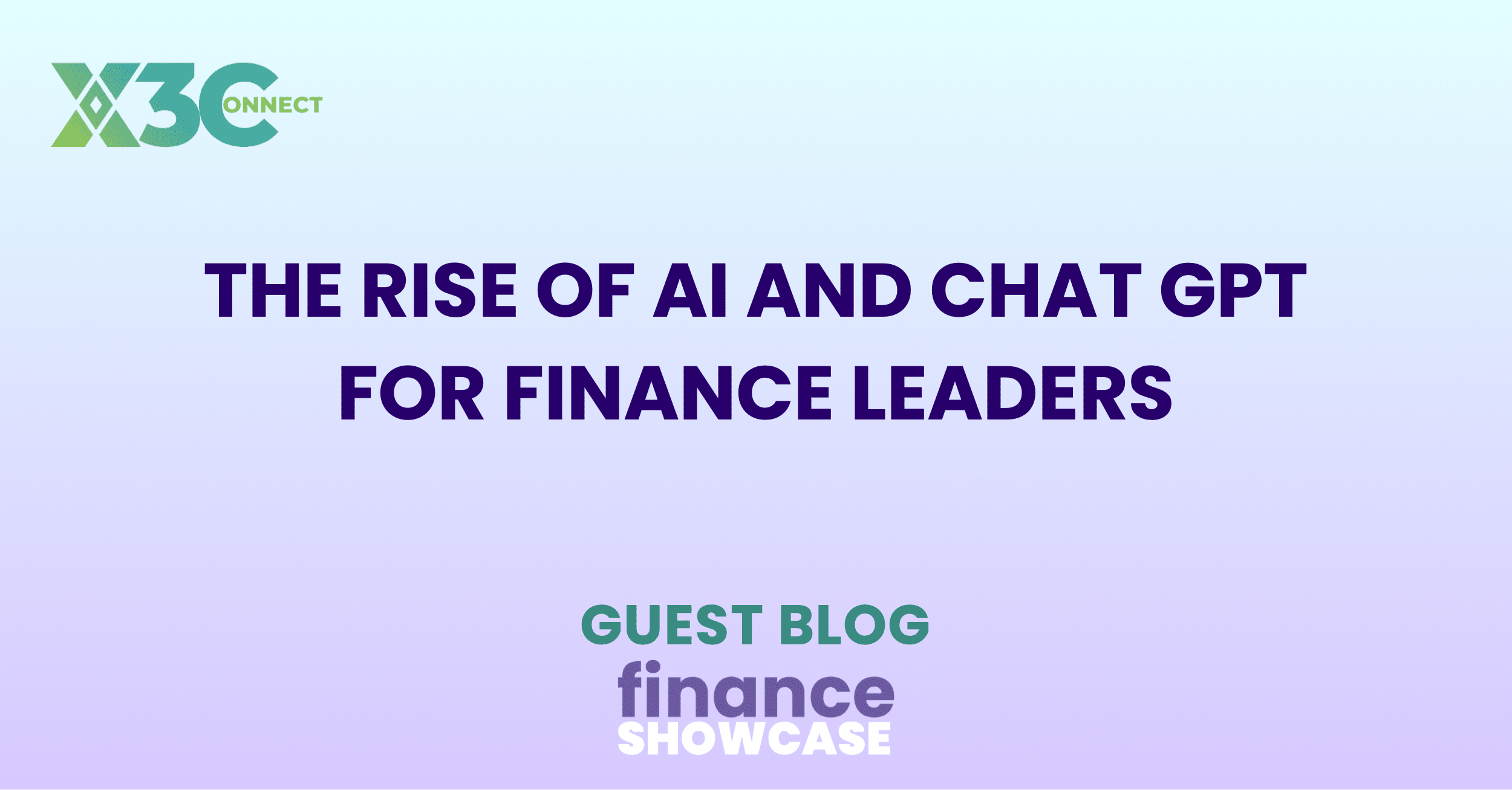Written by X3 Consulting
With ChatGPT and generative artificial intelligence (AI), the pace of progress with AI in finance has been remarkable. From mobile phones to the metaverse, we’re used to technological breakthroughs and rapid uptake from users. But even with this rapid progress, AI’s leap into the public consciousness has surprised many. In particular, the emergence of ChatGPT has shaken the world, with people only beginning to understand what it means for the future of business technology. As we continue to embrace technology, CFOs and financial leaders need to understand the growing potential of generative AI and ChatGPT. With the ability to automate mundane tasks, analyse large data sets, and even generate reports, AI could change how your business operates.
What could generative AI look like for your finance department?
Because of ChatGPT’s limitations, excitement for financial professionals could be less around what AI tools such as ChatGPT can do now and more about what it means for the future.
Let’s use an imagined example.
Emma is the CFO of a mid-sized company that’s experiencing rapid growth. Her workload, and that of her team, has increased significantly, and she needs a financial management solution to help her access and analyse financial data quickly and efficiently.
Emma decides to try out a financial management platform with AI natural language processing capabilities, so she can interact with financial data using natural language without navigating complex reports or spreadsheets.
For example, Emma can ask the platform questions like: “What are our top-selling products this quarter?” or: “How much cash do we have on hand?”
The platform will provide her with real-time insights in a conversational format.
The platform could generate customised financial reports and dashboards based on Emma’s specific requirements, allowing her to access the information she needs quickly and easily.
Thanks to AI and language processing capabilities, Emma accesses and analyses financial data quicker and more efficiently than ever, allowing her to make informed decisions and drive her company’s financial performance.
That’s just an example of what could be.
But, as Paul Ronan says: “Machine learning is already helping identify patterns and support questions in client platforms.
“As we gain confidence in AI, it could provide quick pivots on views and support advice for various fields like finance, tax, and compliance. With controlled narrative and clearer communication, AI can be a powerful tool for assisting professionals and building campaigns.”
Paul says large learning models such as ChatGPT have around 175 billion parameters (adjustable values that help the model make predictions).
This means they learn from data and adapt to find patterns and relationships. More parameters make the model more complex and capable but require more training resources and time.
These huge parameter numbers mean ChatGPT is a generalist able to answer anything, but it’s not a specialised expert in a particular area.
Paul states: “To have confidence in AI’s domain expertise in areas such as finance, we must move towards sparse expertise models that are easier and cheaper to train.
These models will be specialised, allowing for mass adoption and increased confidence in the quality of their responses.
The focus should be on creating expert systems specifically trained for industries like finance, pharmaceuticals, or others, rather than general models that are experts in every field.”
Written by X3 Consulting


